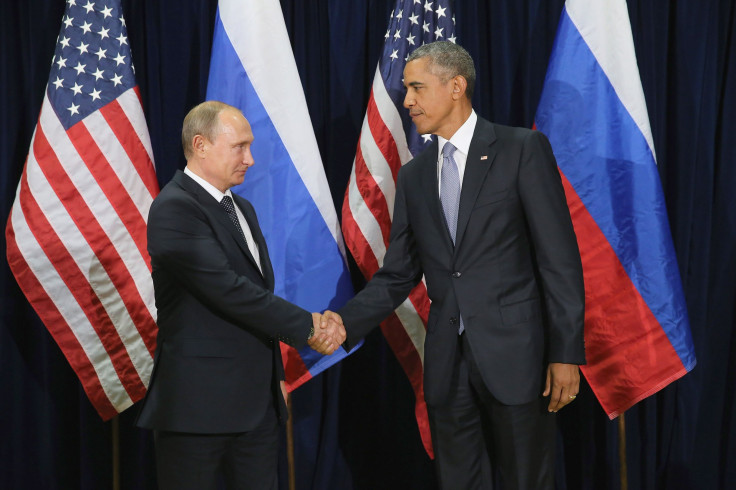Obama Says US, Russia Closer To Syrian Ceasefire Deal, But ‘Not There Yet’

The United States and Russia are committed to working on a ceasefire in Syria, allowing for more humanitarian aid to be delivered to the country torn by civil war, but there is still time for it to be accomplished, according to U.S. President Barack Obama, who is currently in Hangzhou, China for the Group of 20 economic summit.
“We’re not there yet,” Obama said, following a meeting with U.K. Prime Minister Theresa May. “I think it’s premature for us to say there’s a clear path forward, but there’s the possibility at least for us to make some progress.”
The civil war in Syria has killed more than 250,000 people, displacing over 11 million. Syrian President Bashar Assad’s regime has been fighting rebel groups in a bloody campaign that has caused a refugee crisis in the world. There has also been a distinct rise in militant Islamist groups during this five-year war.
According to the Associated Press (AP), a deal could be announced as early as Sunday by U.S. Secretary of State John Kerry and Russian Foreign Minister Sergey Lavrov. The senior U.S. State Department official who spoke to the AP, requesting anonymity, added that even though the countries were close to a deal, some issues have to be resolved.
“We have grave differences with the Russians in terms of both the parties we support but also the process that is required to bring about peace in Syria,” Obama said.
While Vladimir Putin-led Russian government has backed Assad in the conflict, U.S. backs opposition forces that are up against Assad. As part of a deal, the U.S. reportedly wants Russia to ensure that Assad halts offences, an objective that has not been achieved over months of diplomatic efforts.
“These are difficult negotiations,” Obama said. “If we do not get some buy-in from the Russians on reducing the violence and easing the humanitarian crisis, then it's difficult to see how we get to the next phase.”
© Copyright IBTimes 2024. All rights reserved.












